Girl on Girl
The Erotic Haunting of Female Friendship, Jealousy, and the Untold Cost of Uninitiated Womanhood
I’ve had female friendships that felt more like possession than love. It’s all “girl power,” “BFFs,” “support your sisters.” Until it’s not.
If you are a woman, you know this, because you’ve been inside it. You know that this isn’t really friendship.
It’s surveillance.
It’s in the hollow pit in your stomach when she starts sharing the same inside jokes with a new friend. The mysterious cold shoulder you get when you don’t mirror back her exact worldview. The passive-aggressive IG story updates that make you question what you did wrong this time.
We don’t call it jealousy. We say we’re just being protective. That we’re worried and that we’re just looking out for each other. But most of the time, we’re watching. Keeping tabs. Tracking who gets what part of each other and measuring where we stand.
It’s fucking exhausting.
If a man treated us the way we sometimes treat each other (the guilt trips, the psychic tug-of-war, the emotional punishment for daring to evolve) we’d call it abuse. Or at the very least, toxic. But because it’s between women, it gets rebranded as “besties.”
It took me until my mid-thirties to become truly conscious of the reality that this wasn’t intimacy or care, but arrested development. Teenage behavior that we never shed, meant to be left in girlhood where it belongs.
Unless someone teaches you how to become a woman — archetypally, not even biologically — you stay a girl. A grown-ass woman who is still psychologically stuck back in the lunchroom in 8th grade.
Jealous.
Fragile.
Needing to be the only one.
Losing your absolute shit because you’ve convinced yourself that this is just how female friendship is supposed to feel.
I’m far from innocent in all this. I’ve done all the toxic girl things. Every last one of them. I’ve sent texts that were more like emotional subpoenas. I’ve interpreted silence as betrayal. More than once, I’ve been the friend who couldn’t stand my best friend … having another friend(?) Deeply unserious behavior.
And yet, we all do it.
We need to talk about this. Because we’re all experts at naming and spotting even the subtlest hints of “toxic masculinity.” We’ve become so good at this that we’ve built an entire lexicon around it.
But fermenting unseen in the shadows is toxic girlhood — a psychic immaturity that we never quite emotionally digested and moved through. And it’s ripping us apart from within and without. Worse still, it’s keeping us from becoming.
The Arrested Maiden
There are women in their forties and up still playing out the psychic architecture of the teenager. Actively losing sleep over who liked what post and making pointed (and clearly cunty) “jokes” that obliterate the self-esteem of other women.
These women have jobs. They pay taxes. Shit, some of them even have children. But these women? They never actually become women. At least not in the way that actually matters.
I mourn for us. Because nobody teaches us how.
There’s no threshold to cross anymore. No elder women waiting at the edge of the village to help you walk back into yourself. Just pop culture, another episode of The Real Housewives of whatever-the-fuck city, childhood trauma, and the cesspool of the internet.
You have your period.
You likely start to feel the violating penetration of the male gaze far too early.
Somehow, those two feel like the only rites of passage we have left as women. This, for us, marks “growing up.” But inside, most of us are all still organizing our entire self-concepts around being:
Chosen.
Wanted.
Close.
The favorite.
The media served up the idea of the maiden as an endpoint. She is thin, pliable, hysterical, sexy.
But most of all she is marketable.
When she cries, it’s gorgeous.
She posts cryptic captions.
She wants so fucking badly to be understood.
But only in carefully curated aesthetic snippets. Not a hint of maturity or internal authority in sight. Just a monotonous merry-go-round of desire.
This is where we form our friendships from as women. From a place that has no idea how to be alone. Friendships that are rooted in being the same. Liking the same things. Feeling the same pain. Feeding off each other psychically.
Friendships of physically stunted maidens cannot handle change. As soon as one of you starts growing, the entire thing falls apart. Because relationships like this were never built to stretch and expand. They were built to mimic and mirror.
These kinds of “besties” punish growth.
God forbid you say no. Speak your mind. Pull back for a while to hear yourself breathe again. Your audacity to do any of these things will mean you’re distant, you’ve changed, or things just aren’t the same anymore.
After all, you were supposed to stick together. Right? That was the agreement.
An unspoken pact formed between unparented parts — a psychic co-enmeshment that felt like love but was really mutual dysregulation with matching aesthetic preferences.
It’s inevitable, though.
One of you might need a little more silence. Some space. Maybe one of you stops texting back with the same frequency/length.
The other one can’t handle that. Because maiden friendships don’t die quietly. They end in silence and rage and digital vigilance. You start watching each other from a distance. Little check-ins that feel more like emotional recon missions. Waiting for proof that confirms what you’ve already decided about her.
We’ve all done it.
And I don’t blame us.
There is no ritual left. We never learned how to leave girlhood behind. What we got instead was fracture — a psychic break instead of inner growth, confusion dressed up as independence, a collapse of identity with no elders to midwife us through it all.
Female Friendship as Soft Possession
You’d think you’d be more likely to find this kind of jealousy in romantic relationships.
Panicked and clingy energy.
The obsession with who they’re texting and whose photos they’re liking.
Decoding every word they share on social media.
The ache to be her #1.
The surge of self-hatred and rage when you’re not.
Does this not sound like a limerent teenage love obsession? Or codependence? Is it not giving ‘intimacy issues’? But when it happens between women, it’s like we want (and somehow need) to refuse to see it for what it truly is.
There’s something deeply erotic about wanting to be someone’s one-and-only-one. It’s not exactly about sex. But it’s not entirely disconnected from it either. It’s something blurrier. It tastes more like magnetism and psychic fusion. The feeling like you are each other.
And when that feeling is threatened (i.e. when your BFF suddenly has a new confidante, partner, a new project, a new version of Self), the jealousy literally short-circuits the nervous system. It feels like betrayal, rejection, and grief.
It smacks of eros. And most women would never want to admit this, because we so often think of eros as genital. Romantic and explicit. But eros is so much older and more complicated than that. It’s the force that animates the psyche toward aliveness and meaning. Toward beauty.
Eros is what pulls you ever closer toward what you find most vital, compelling, and archetypally charged. It’s the current of fascination. And it shows up in female friendship all the time — especially when one or both parties are frozen in the psychological state of the maiden.
We’re so quick to say things like “he’s acting like such a woman” when a man acts jealous, insecure, or otherwise emotionally manipulative. But what we’re really describing is the behavior of teenage girls.
This is arrested maiden energy.
Hungry.
Dramatic.
Compulsively expressive.
Incapable of tolerating ambiguity.
This is not the nature of the mature feminine. It is not the energy of The Mother. It’s a psychic state of high-charge and low containment that our culture is continuously feeding.
You can see it in every storyline:
the chosen girl,
the best friend,
the betrayal,
the “pick me”.
The absolute triumph of being loved the most.
From when we are very small, young girls are taught two very important lessons about life and survival: 1) Proximity = power. 2) Power = safety.
This is why we hoard closeness and guard emotional intimacy like precious territory. What we’re actually doing is re-routing sacred energy (eros) into surveillance, sabotage, and silent punishment.
When the erotic current can’t move where it’s naturally meant to go — creativity, ritual, or the sacred — it collapses in on itself and becomes control and possessiveness.
The other person stops being a soul you’re witnessing and starts becoming a mirror you need to keep clean. And close. Because without her, you don’t know who the hell you are anymore. The old story of you starts to crack.
And if you’re not ready to grow up, even the smallest of cracks in your maiden mask feels like death.
This is precisely how the dark feminine begins to devour. All that ache to be seen and felt and held was meant for creation. We’re meant to pour that into art and ritual. Anything involved in the beautiful, messy work of building something real.
Without initiation and direction, that energy turns inward and starts circling the psychic drain. And the resulting toxic sludge turns on the people closest to us — and then finally (and most poisonously) on ourselves.
The worst part isn’t the broken friendships or the slow poison of resentment. It’s the creative lifeblood that gets wasted. That sacred fire that could have lit altars, written books, birthed entire inner worlds. And instead, it gets spent on strategic silence, obsessive scrolls, psychic stalking, and bitter one-liners on TikTok.
We think we’re being loyal. Fierce. Protective of our boundaries™. But what we’re actually doing is forfeiting power. Bleeding it out through every unspoken need and self-betryal. And this is generational. A legacy of women who were never taught how to wield their own eros. Only how to turn it against each other.
The Devouring Feminine
When maiden energy is left uninitiated and overly fed, all that psychic heat starts to ferment, mutate, and rot. The jealousy, obsession, and inability to tolerate individuation calcifies into a new form: the devouring feminine.
This archetype is typically seen through the lens of mother and child. The “smother mother” who projects her unmet dreams onto her daughter, keeping her psychologically bound, regardless of physical distance.
But this very same energy shows up in female friendships. The mother who refuses to let go of her child is also the friend who dissolves into existential panic when you dare to evolve. Concern looks more like control, and jealousy creeps into the cracks of simple interactions.
Underneath that concern is a refusal to allow death. The archetypal death of a psychic contract forged through similarity and enmeshment.
She watches from (mostly digital) corners for signs that you’re changing and no longer mirroring her worldview back to her. She peers through your life like a mother tracking a rebellious daughter for the smallest sign of defiance.
Scanning for betrayal.
Anything that smells like divergence from the blood oath is read as danger. Because to someone who lives in this archetypal pattern, individuation isn’t to be trusted. Growth is abandonment.
The root of all this is that enmeshment feels safer than differentiation. If — as besties, of course 💅🏻 — we all think the same, believe the same things, and stay close and small, then nobody in the dynamic has to confront the shame of being left behind.
There is one problem, however. A chink in the maiden’s armor. The feminine doesn’t want to stay small. It’s meant to spiral, expand, and transmute. That’s what it’s built for.
When a woman refuses to stay stuck in an arrested maiden friendship dynamic, she becomes a threat. Refusing to play these little reindeer games destabilizes the whole system. A woman like that is unnerving, unreadable, and repulsive to those who are still addicted to co-regulation as identity.
So, they try to shrink her and pull her right back into the pettiness.
Ghosting.
Passive-aggressive subtweets.
Coordinated character assassinations.
They try to remind her of who she used to be. Because the person she’s growing into makes them feel exposed.
Let’s be honest. Most of us don’t actually like seeing our sisters win.
That un-mothered, uninitiated part of us feels terror when another woman steps into her sovereignty. Instead of honoring her, we isolate and mock her. We try to bring her back down to the frequency we can’t seem to escape ourselves. Because if she rises, it forces us to confront how long we’ve been psychically stagnant.
Misery really does love company.
Our foremothers would be horrified. These women bled together under the moon. They midwifed and buried their dead. They would see what we’ve become, and they would mourn. They’d weep for the death of the village. For the loss of rites of passage that once taught us how to move from girlhood into womanhood. And the mockery we’ve made of the sacred feminine.
They knew what we’ve forgotten:
that true womanhood isn’t defined by appearance, or age, or proximity to power. It’s by the capacity to hold death. Which means allowing what is no longer true to die. To release another woman when it’s time for her to go. To honor change. And to let others grow without making it about us.
Somewhere along the way, we stopped passing this on. So now, instead of guiding each other across the threshold, we punish the ones who dare to cross it first.
The Cure of Covenhood
A good place to start would be to call all of the jealousy, policing, and flinching (when another woman dares to expand beyond what we’ve agreed she’s allowed to become) for what it is: uninitiated feminine energy running on survival, fear, and performance. Nothing more than the false loyalty of a deeply unevolved psyche.
And it’s everywhere.
It’s seeping through our memes. You can see it in rituals of shade-throwing and the way we bond through subtle digs and emotional gatekeeping. But most of all, it’s in the social contract women unconsciously sign with each other that says:
Stay small with me, or be cast out.
Hear me when I say (or write): there is no dignity, beauty, or mystery in this. It’s just the same old toxic teenage girlhood loop on endless repeat.
How we break it is initiation. Unfortunately, we’ve confused that word with something else entirely. These days, “initiation” gets slapped on a $4,444 divine feminine retreat in Joshua Tree, hosted by a 24-year-old breathwork coach named Devyn — eyes glinting up at you from beneath a pencil-rimmed felt fedora, promising to unlock your “juiciest orgasm” via cacao, eye-gazing, and hot takes about feminine embodiment that she probably plagiarized from an influencer named The Pussy Oracle™. All while talking shit about you in a group chat full of lip-filler spiritual baddies and astrologically approved MLM girlbosses.
Let’s be honest. My generation — yes, millennial women — are the OG architects of this particular grift. And while it may dress itself in crystals and softness, it has nothing to do with real psychic initiation.
True initiation is ritual death. The last breath of the girl you thought you had to be. The slow and disorienting collapse of the dynamics that kept you bonded to others through false closeness. It’s the moment you stop asking for permission and start letting things die (relationships, identities, performances) without apology.
It allows you to let your friend become a stranger to you — and bless her anyway. It means staying rooted in your own inner process and honoring her transformation. Even when it leaves you behind.
This is where real sisterhood begins. Covenhood. The soul-deep agreement that says:
I don’t need to own you to love you.
I don’t need to understand your path to respect your becoming.
I won’t chain you to my comfort and call it friendship.
Covenhood is a blood vow in the soul: I will not betray the feminine in you, even when it threatens the unhealed parts of me.
Initiated women — those who’ve made the passage from maiden to mother — don’t play jealousy games.
They witness.
They hold.
And when it’s time,
they release.
They understand that sovereignty in another woman doesn’t threaten their own. They’re not addicted to girlish codependency. Over time, they learn and embody the difference between proximity and presence.
And most importantly? They don’t punish each other for growing.
What would our friendships look like if we remembered this?
What would it feel like to be held in a circle of women who aren’t performing, competing, or quietly feeding on each other’s wounds — but tending to something enduring? Speaking prophecy. Protecting each other’s becoming. Watching each other rise without flinching.
Covenhood isn’t all light and gentleness. But it is potent. It’s real. And it’s desperately needed. The world won’t initiate us. The algorithm won’t initiate us. The motherless mothers raising us never could. So we must choose it. For ourselves. For each other.
And maybe that’s why you’re still here, reading this.
Because something in you already knows. Some old, buried wisdom in the bones. A faint ember glowing at the center of your chest. Not gifted to you by any brand or lineage or platform — just remembered.
We’ve spent enough time grieving the father. It’s time we reckon with the mother. The shadow we’ve refused to face. The rot we’ve projected outward. The power we’ve neglected.
No more hiding behind critiques of the patriarchy while we sabotage our own.
We’re the ones who have to stop this madness. And we do it by growing up. By tending to what’s been forgotten. By refusing to pass this sickness on to our daughters.
It’s not too late. But it is time.




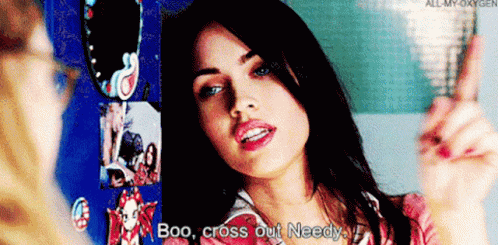
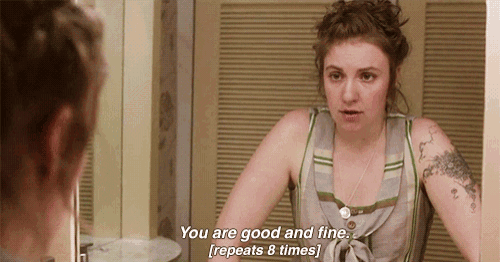
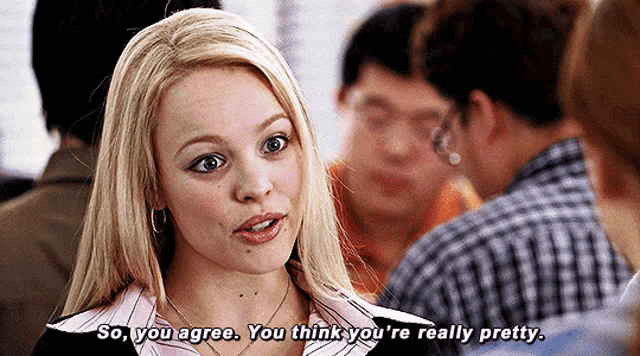





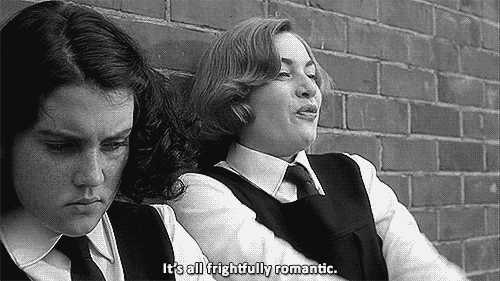
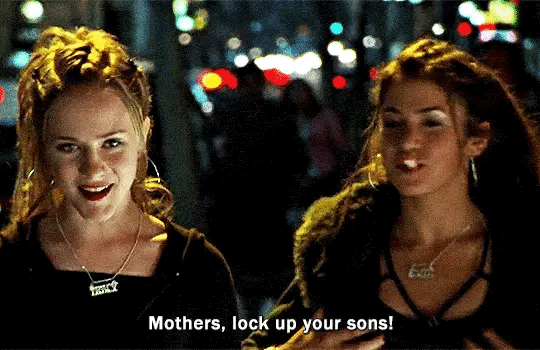

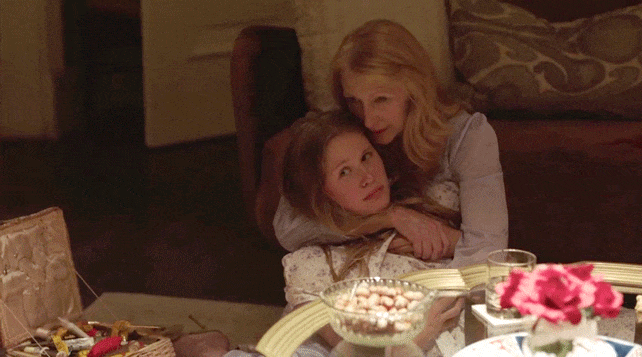


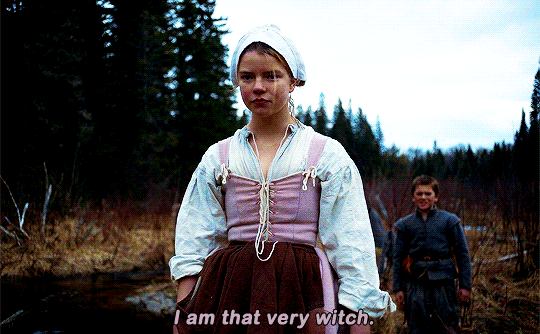
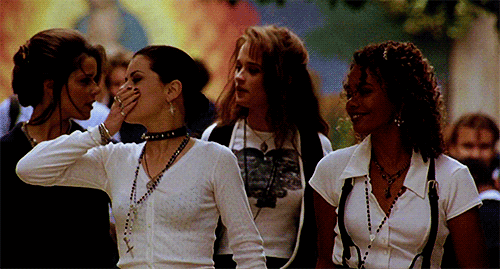



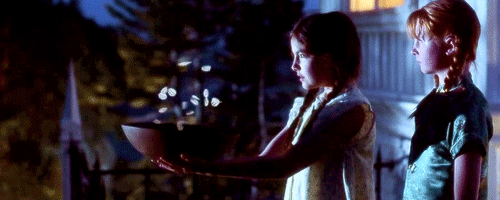
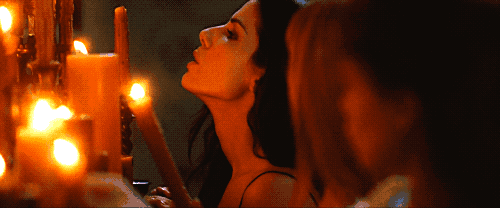
This entire piece is so empowering and magical, “I don’t need to own you to love you.
I don’t need to understand your path to respect your becoming.
I won’t chain you to my comfort and call it friendship.”
WOW
so relevant and needed🫶